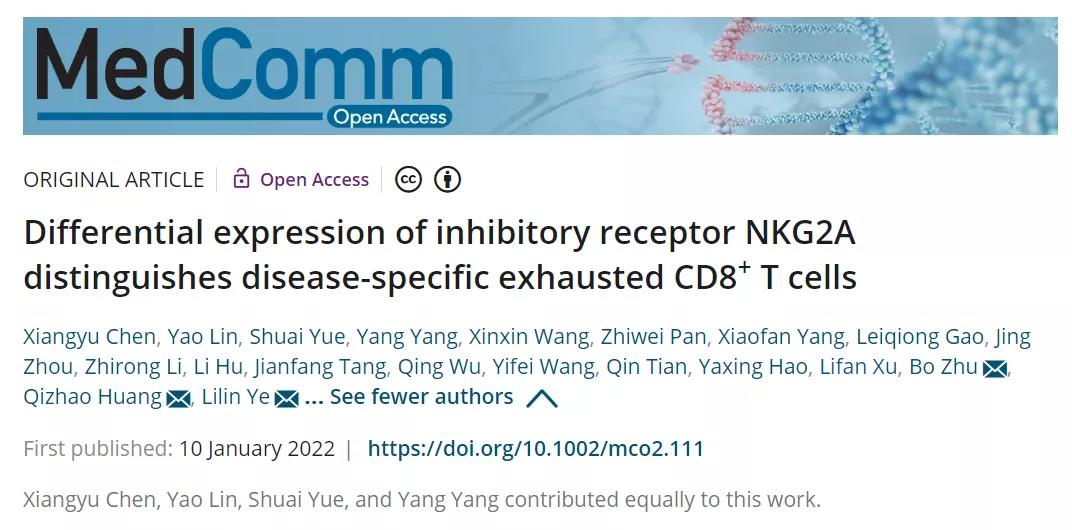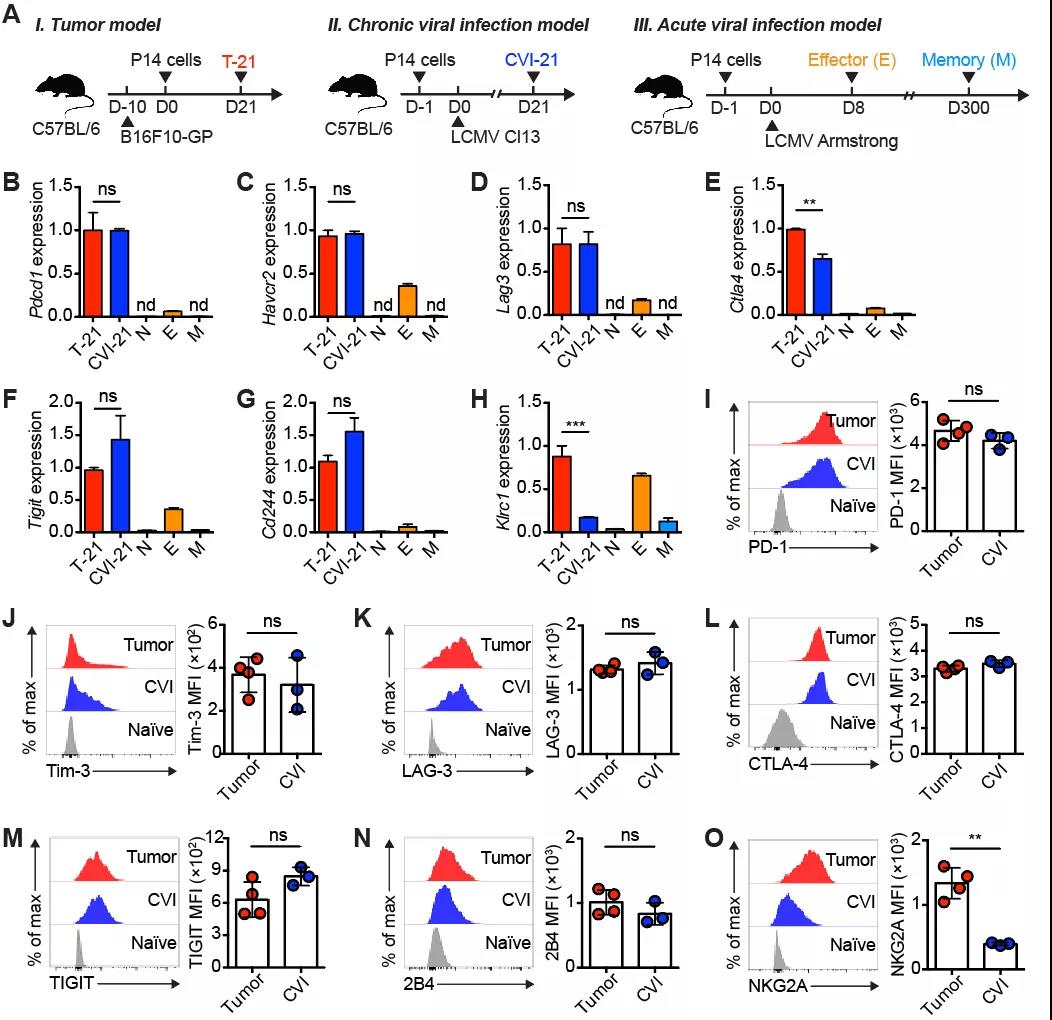MedComm | Differential expression of inhibitory receptor NKG2A distinguishes disease-specific exhausted CD8+ T cells

Open the phone and scan
Exhausted CD8+ T (Tex) cells are caused by persistent antigenic stimulation during chronic viral infection or tumorigenesis. Tex cells upregulate and sustain the expressions of multiple immune inhibitory receptors (IRs). Blocking IRs of Tex cells, exemplified by PD-1, can partially restore their effector functions and thus lead to viral suppression or tumor remission. Tex cells derived from chronic viral infections share the expression spectrum of IRs with Tex cells derived from tumors; however, whether any IRs are selectively expressed by tumor-derived Tex cells or virus-derived Tex cells remains to be learnt. In the study, authors found that Tex cells upregulate IR natural killer cell lectin-like receptor isoform A (NKG2A) specifically in the context of tumor but not chronic viral infection. Moreover, the NKG2A expression is attributed to tumor antigen recognition and thus bias expressed by tumor-specific Tex cells in the tumor microenvironment instead of their counterparts in the periphery. Such dichotomous NKG2A expression further dictates the differential responsiveness of Tex cells to NKG2A immune checkpoint blockade. Therefore, the study highlighted NKG2A as a disease-dependent IR and provided novel insights into the distinct regulatory mechanisms underlying T cell exhaustion between tumor and chronic viral infection.

However, the clinical advances of IRs-targeted immunotherapies in chronic viral infections seem to be not matched for tumors. For instance, only modest effects were observed in hepatitis C virus (HCV)-infected or human immunodeficiency virus (HIV)-infected1 patients who received anti-PD-1 therapies. With hindsight, chronic viral infection and tumor are two different types of diseases with distinct physiopathology. Despite intensive studies in T cell exhaustion, very little is known about the differences of T cell exhaustion between these two distinct diseases in regard to IRs. Herein, authors aimed to investigate the potential IRs that are expressed by Tex cells for a given epitope in a disease-dependent manner. Furthermore, the mechanisms underlying the modulation of the disease-specific IR(s) and Tex cell response upon blockade of the disease-specific IR(s) were also explored.

Comparisons of multiple inhibitory receptors in exhausted CD8+ T cells from tumor and chronic viral infection
Article Access:
https://doi.org/10.1002/mco2.102Website for MedComm: https://onlinelibrary.wiley.com/journal/26882663
Looking forward to your contributions.


